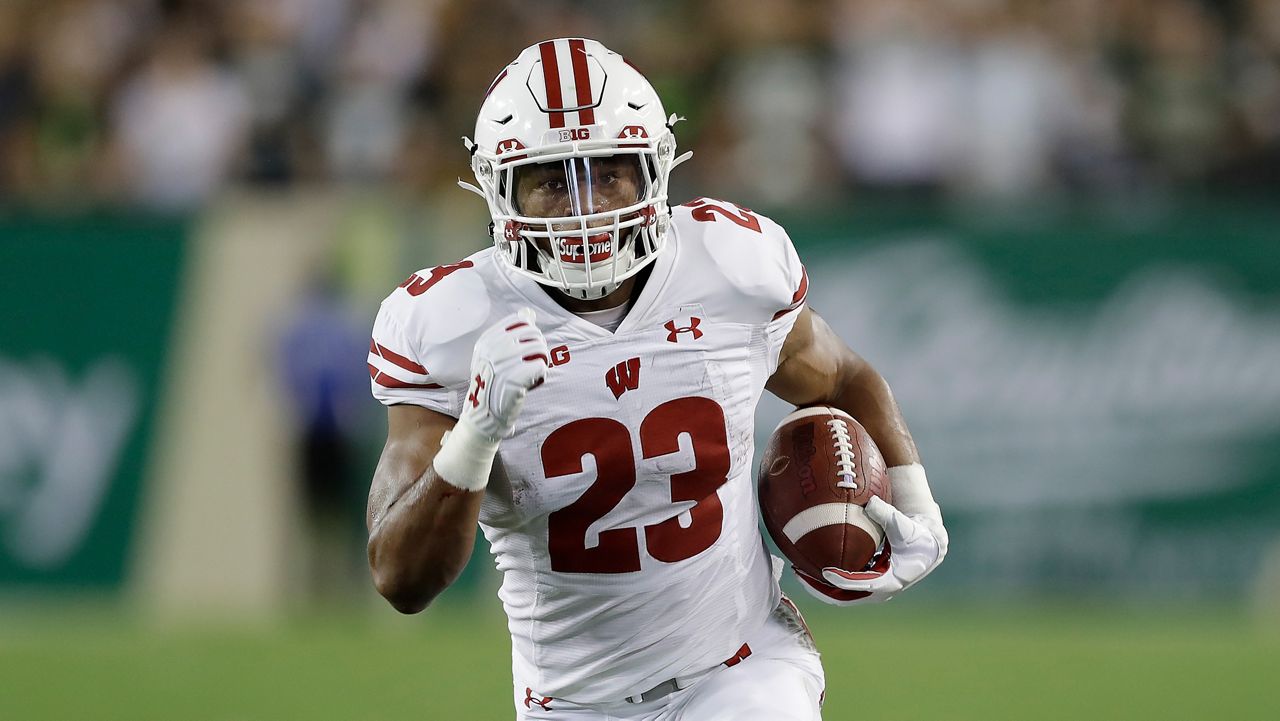Simply put, Wisconsin's Jonathan Taylor is one of the most productive running backs in college football history.
His 6,174 career rushing yards are 6th all-time, but that total is the most ever in a three-year span.
Taylor's lowest totals coming as a true freshman, when he finished third in the country with 1,977 rushing yards and 13 touchdowns. He was 1st team All-Big Ten and 2nd team All-American, finishing 6th in the Heisman Trophy voting.
That was followed up with a sophomore season where he led the nation in carries and rushing yards with 2,194 on 307 attempts. He added 16 TDs. Those numbers adding up to the Doak Award as the nation's top RB, 1st team All-Big Ten and Big Ten RB of the Year, unanimous 1st team All-American honors and a 9th place finish in the Heisman.
Taylor concluded his illustrious career with 2,003 rushing yards on 320 carries and 21 TDs. He repeated as the Doak Award winner, 1st team All-Big Ten and Big Ten RB of the Year, and unanimous 1st team All-Amiercan. The Heisman voters bumping him up to a 5th place finish.
That steady, constant success is what Taylor believes sets him apart from the rest of the running back draft class.
"If you look at the next level, what separates the great backs from the elite backs is them really being able to play at an elite level day in and day out every Sunday," Taylor said at the NFL Combine in late February. "So I think that's the biggest thing that separates me is my ability to be consistent year in and year out."
Taylor is a physical runner at 5'10" and 226 pounds. There is also very good speed in his game, showcased by his 4.39 second 40-yard dash at the Combine, best of all RBs and seventh fastest of anyone who ran in Indy. Taylor even taking that to the Wisconsin track team in 2019, where he competed on the 4 x 100 meter relay team.
But it wasn't just brawn and burst that made Taylor so successful running the ball.
"Vision is really just understanding the scheme," he said. "You know if we're runnng outside-zone to the left and you see the backers bossed over to the left, you have a good idea that if you push the line of scrimmage long enough then you'll be able to get that backside cut. So a little bit is just knowing the scheme."
There is room for improvement in Taylor's game. For as good as he was toting the rock, his excperience in the passing game was limited, with 42 receptions for 407 yards over three seasons.
"Just being able to catch the ball consistently," Taylor said. "I had a lot of opportunities this year, more than last year. I had about 25 catches this year which is a big jump from last year. Just being able to continue to show that through this Combine process once we hit the field work and show that I'm an every down back."
What's more concerning is the workload Taylor had at Wisconsin, with 926 carries in three years. However, Taylor was healthy throughout his time with the Badgers.
Fumbling also an issue, putting it on then ground 18 times, with 15 lost, in three seasons.
"Freshman year wasn't my best year with that," Taylor said. "Cleaned it up sophomore year a bit. You still want to eliminate those at zero. Then going into junior year I had a couple mishaps, some with the wildcat... You never want those kind of mishaps to happen, but as far as those fumbles when you're in traffic, trying to fight for extra yards, those are things when you have to be technically sound."
In the end, where Taylor gets drafted will not be much about his talent, but more so the overall philosophy on drafting running backs high nowadays. Because of that, Taylor is likely going to be a 2nd round selection.



